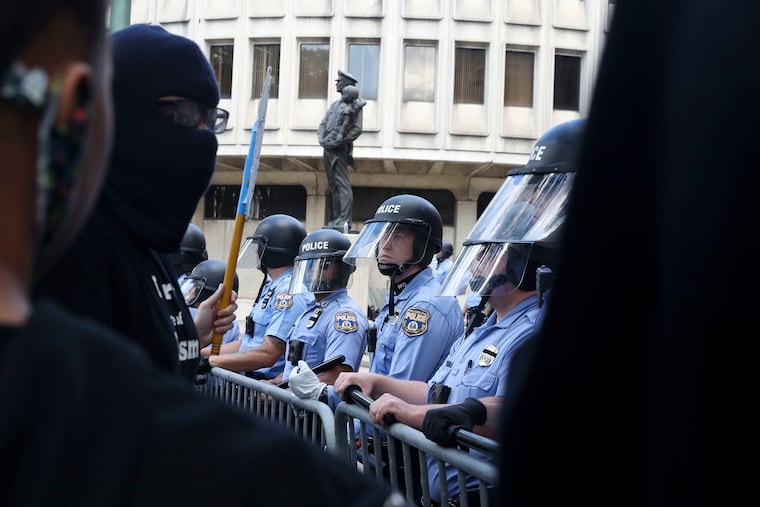Philadelphia voters approve police reform ballot questions
Philadelphia will establish a new police oversight commission and amend the City Charter to ban illegal stop-and-frisk.

Philadelphia will establish a new police oversight commission and amend the City Charter to ban illegal stop-and-frisk, after voters overwhelmingly approved two ballot questions on police reform measures.
Voters also supported ballot measures to establish a victims’ advocate office, and for the city to borrow $134 million for capital projects.
The two questions on police reform were on the ballot as cities across the country confront institutional racism and face calls to reform or defund the police. In Philadelphia, the issue of police reform took center stage again last week, after police fatally shot Walter Wallace Jr.
Both of the ballot questions related to police reform are the result of City Council legislation passed in June amid demonstrations and calls for change after the police killing of George Floyd in Minneapolis.
One of the ballot questions would grant City Council the authority to form a new Citizens Police Oversight Commission. Council must work with Mayor Jim Kenney’s administration to determine the new commission’s structure, budget, and powers.
» READ MORE: Calls to ‘defund the police’ intensify after Philadelphia police killing of Walter Wallace Jr.
While details of the new oversight body have yet to be determined, officials said during the summer that they were already planning ahead for it in hopes of strengthening oversight of the city’s police department. The commission would replace the existing Police Advisory Commission, which has been criticized for lacking enough power to provide effective oversight.
Voters also overwhelmingly approved a change to Philadelphia law to ban “unconstitutional” stop-and-frisk policing. The measure is largely symbolic, as unconstitutional police stops are already illegal. But existing data on Philadelphia police officers’ stops have shown that officers disproportionately stop people of color and continue to stop subjects without first establishing suspicions of criminal activity.
The change to the City Charter would seek to curtail the controversial practice of stop-and-frisk by specifying that officers must have a reasonable suspicion that individuals they stop are involved in criminal activity. Police cannot stop someone based on “race, ethnicity, gender, sexuality, religious affiliation or expression, or other protected characteristic,” according to the language of the ballot question.
Another ballot question that received widespread support calls for the city to create a new Office of the Victim Advocate. The office will work with prosecutors and police with a focus on supporting victims of crime and their families and ensure that they know their rights.
The state already has a victims’ advocate, and the ballot question calls for the city to create its own version of that office. The mayor would appoint the victim advocate, with the approval of City Council.
A fourth ballot question — which also received a large majority of “yes” votes — would authorize the city to borrow $134 million. The funds would be spent on capital projects for transit, streets and sanitation, municipal buildings, parks, recreation, and museums, and community development.